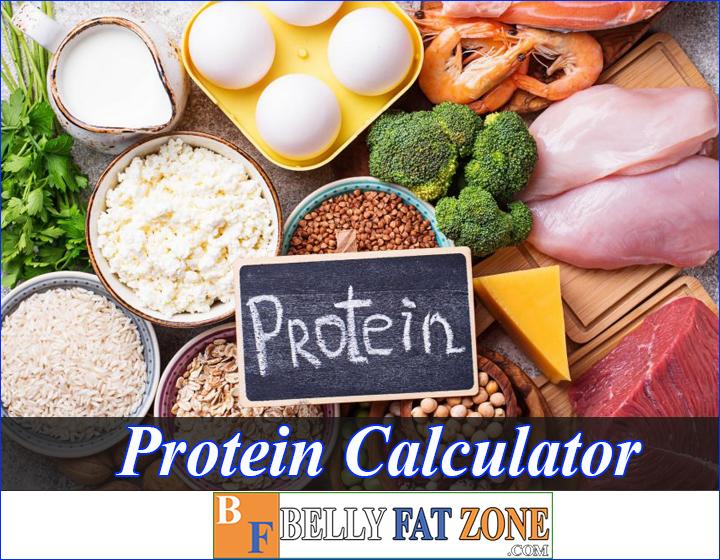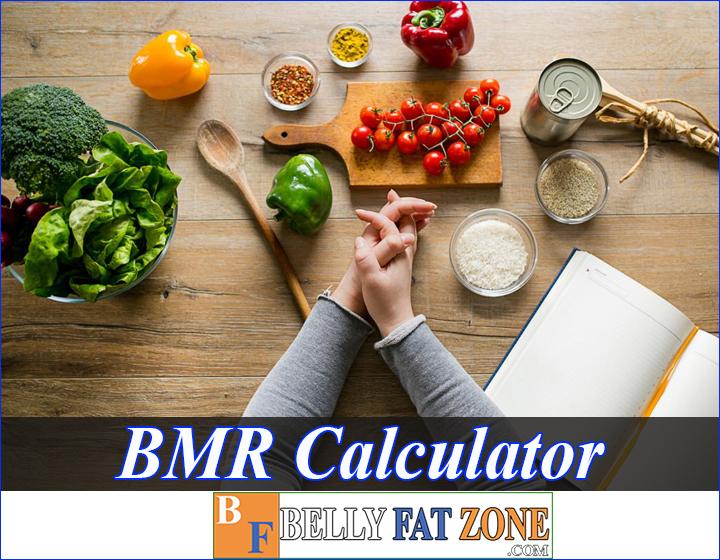One of the three main nutrient components that our body absorbs for life and maintenance and development is protein.
One special thing we need to keep in mind is that it's easy to use protein because the taste of the protein is always more appealing than the taste of carbs or fat.
It is important for athletes, especially bodybuilders, and normal people, with little exercise is always one of the key ingredients.
Have you ever encountered muscle mass loss? If the question answered yes, the cause could come for many reasons, for example, training with the wrong method, not heavy enough to stimulate muscles …

Besides, another cause that can adversely affect our performance results, which is not getting enough protein.
- So what are proteins, and how do they work on the body?
- How many grams of protein do we need for bodybuilders per day?
This article will learn how to calculate the amount of protein in your body each day to ensure there is no excess, no shortage, and we will divide the number of dishes accordingly each day.
Protein calculator
We have recently investigated the protein requirements in a day for muscle gain and fat loss … However, if we calculate the amount of protein manually, we will need to remember a lot of numbers.
So is there a more convenient way to calculate protein requirements? The answer is yes, and that's how to use the online Fitness Vip tool. To use this tool, you need to …
Enter your own weight index in the data entry box and press the button “Calculate Protein,” no need to remember any other numbers. The Bodybuilding Vip's protein calculator includes 3 protein thresholds for you to choose from.
These options include the need to increase muscle mass, lose fat, and the need for those who do light, little or no exercise. Depending on your goal, choose 1 of these 3 protein thresholds to apply to your diet.
Read more: Macro Calculator for Muscle – Focus on Your Numbers.
What is protein?
Protein is a compound composed of a chain of smaller molecules called amino acids. Protein is the building block of the body. Our tissues, such as muscles, ligaments, tendons, hair, internal organs, and skin, are all made up of protein.
Besides that, protein also participates in the formation of hormones, enzymes, and chemicals necessary for life. Our bodies need 21 amino acids to form proteins.
Among them, 12 types of amino acids can be produced by the body, and 9 types must be obtained from daily food. The types of amino acids that must be obtained from foods are called “essential amino acids.”
The main reason we need to eat protein is to provide the body with enough essential amino acids to build and repair the body.
Protein is essential for athletes and weightlifters. When we exercise regularly, the body's protein needs will increase. Besides, protein is also essential for those who are sedentary.
In sedentary people, not eating enough protein they will cause them to lose muscle faster. And the faster they lose muscle, the more likely they are to reach the “end” of their life.
Usually, the amount of protein that we consume each day will be the main factor determining whether our body has enough essential amino acids or not. However, the quality of the protein we eat is also important.
Animal proteins such as meat, fish, eggs, and milk are viral among athletes. Because they contain large (but balanced) essential amino acids, besides some types of plant protein…
Protein from rice and beans is also of good quality. Normally, animal protein will best meet our needs. However, vegetarians can still get enough plant-based protein to gain muscle and strength.
What type of protein is best?
Some people claim that they can get enough protein by eating broccoli (broccoli) and don't need protein from animals. However, this is not possible. First, 1 pound (453 grams) of broccoli contains only about 13 grams of protein.
This means that we (and especially those who are physically active) definitely don't get enough protein by eating just broccoli. Second, not all proteins are of equal quality.
Some proteins will have better absorption and also more diverse amino acid profile. Although, it is wrong to conclude incomplete plant proteins. However, some plant proteins actually have fewer amino acids than others.
For example, animal proteins such as meat, eggs, and dairy products contain large amounts of essential amino acids. This is why they are more popular with people on high-protein diets.
Going back to broccoli, to better understand the nutritional value difference between them and animal protein (beef), let's take a look at the essential amino acid content in 1 ounce (28 grams) of each—kind of food.
| Amino Acid Comparison | ||
|---|---|---|
| Essential Amino Acid | Broccoli | Beef |
| Histidine | 16.5 mg | 236 mg |
| Isoleucine | 22.1 mg | 377 mg |
| Leucine | 36.1 mg | 646 mg |
| Lysine | 37.8 mg | 686 mg |
| Methionine | 10.6 mg | 207 mg |
| Phenylalanine | 32.8 mg | 317 mg |
| Threonine | 24.6 mg | 338 mg |
| Tryptophan | 9.2 mg | 79 mg |
| Valine | 35 mg | 395 mg |
We can see that the amount of essential amino acids comes from beef much more than from broccoli through statistics. This is also the main reason why fruits and vegetables are not great protein sources for the body.
If we want to get enough protein with plant-based foods, we will have to eat huge amounts of food, and this is not practical to apply.
Some plant proteins have an unbalanced amino acid profile and are deficient in some essential amino acids.
Read more: Body Fat Calculator – What Percentage of Your Body do You Have?
How much protein can we absorb?
When it comes to absorption, some think that our body only absorbs about 40 grams of protein in one meal. So is this correct or not?
What happens when we take protein?
After being loaded into the body, acids and enzymes in the stomach break down proteins into amino acids. Some proteins, like whey, break down more quickly.
In contrast, protein from other foods like eggs takes longer. Once broken down, the amino acids travel to the small intestine, where special cells help transport them into the bloodstream.
Cells in the gut are the ones that limit the number of amino acids (and other nutrients) that can enter the bloodstream within 1 hour. Thus, the rate of protein absorption is limited by 2 factors.
The first is the rate at which proteins are broken down into amino acids. Second is the rate at which amino acids are transported out of the intestine and into the bloodstream. According to research, in one hour, the human body can absorb the following protein levels.
| Protein Absorption Rates | |
|---|---|
| Species | Speed |
| Whey Protein | 8 – 10 grams / hour |
| Casein Protein | 6.1 grams / h |
| Soy protein | 3.9 grams / h |
| Egg protein | 2.8 grams / h |
These numbers will not be accurate for all people and circumstances. However, data has shown us that some proteins are absorbed quickly, and some are absorbed quite slowly.
We now know that the human body only absorbs a small amount of protein per hour. So what if a large amount of protein is taken in one meal? Is “excess” protein wasted?
The truth about protein absorption
McMaster University (Canada) study has shown that 20-40 grams of protein maximally stimulate protein synthesis. However, getting more protein than this (in one meal) hardly helps build more muscle.
Scientists call this phenomenon the “muscle full effect,” when this happens, the amino acids will no longer be used to build muscle, but instead, they will be oxidized.
Some understand this restriction on protein synthesis to be the restriction on protein absorption. And they argue that the body cannot absorb the “excess” protein. So is this correct?
Limits of protein synthesis
The answer is no. The ability to absorb and synthesize protein are two completely different things. Protein absorption is the movement of amino acids into the bloodstream over a specified period of time.
Protein synthesis is the use of these amino acids to build tissues in the body. On the other hand, in addition to the “degree” of an increase in protein synthesis, the “time” at which this “increase” is “maintained” is also very important.
A time limit of protein synthesis
According to the study, an increase in protein synthesis was maintained for no more than 3 hours, even though amino acids remained in the blood. In other words, a large amount of protein can take around 6-7 hours to process and digest.
However, the level of protein synthesis only increases and remains for about 3 hours. This is why taking about 30 g of protein every 3 hours leads to more muscle protein accumulation than getting too little or too little protein at a longer interval.
By taking protein regularly, we will help increase protein synthesis for many hours a day. Besides, this also helps amino acids be used primarily for protein synthesis instead of being oxidized.
On the other hand, a study by the Université Clermont Auvergne (France) showed that 30 grams of whey protein increased the protein synthesis level higher than 30 grams of casein.
However, because (whey) has a fast uptake rate, the level of protein synthesis falls back to normal more quickly. Whey helps increase protein synthesis more but in the short term. Casein, on the other hand, helps with less protein synthesis but lasts longer.
How long the protein stays in the gut
In addition to protein synthesis problems, people think that protein absorption is limited because they think: all food moves through the small intestine in 2-3 hours.
In other words, they claim that our bodies can only absorb a small amount of protein before it leaves the small intestine and is eliminated. However, this is not correct. Protein, carbs, and fat do not move uniformly through the digestive tract.
And they don't leave the intestines in the correct order when they arrive. When the stomach detects the presence of protein, a hormone is produced to delay stomach emptying.
This hormone slows down intestinal contraction, giving the body enough time to absorb proteins (amino acids). Besides, carbs and fat are processed and absorbed quickly so that the body will spend more time on protein.
Can the body absorb a lot of protein in one meal?
In a study by Center de Recherche en Nutrition Humaine (France), scientists divided 16 young, healthy women into two groups. The first group ate a large amount of protein (79% protein per day) in a single meal.
Meanwhile, the second group was asked to consume this protein for 4 meals. After 14 days, the researchers found no significant difference in protein synthesis or breakdown in the two groups.
Not only that, in one study of intermittent fasting, the subjects were divided into two groups. One group followed a normal diet, and 1 group fasted for 20 hours and then fed food for the remaining 4 hours.
After 2 weeks of follow-up, the results showed no difference in protein metabolism between the 2 groups. In conclusion, the body can absorb a large amount of protein in one meal. So, we do not need to worry too much if we eat a lot of protein in one meal.
How Much Protein Should I Eat To Build Muscle?
When exercising, the body's protein requirements will increase. So, how much protein should we get to meet this need?
According to McMaster University (Canada) research, the intake of 0.6 – 0.8 grams of protein per pound (453 g) of weight is enough to maximize protein synthesis.
However, the researchers also note that we will need more protein if the body is in a period of calorie restriction or regular/intense exercise.
Not only that, but a study at The University of Western Ontario (Canada) also has the same conclusion. For athletes, 0.6 – 0.8 grams of protein per pound of body weight (1.3 – 1.8 g / 1 kg of body weight) is considered a standard.
And this number can vary depending on factors such as energy balance, amount of carbs in the diet, intensity of training, training history …
Besides, a study of Auckland University of Technology (New Zealand) concluded that … protein requirements of athletes exercising resistance, calorie restriction will fall to about 2.3 – 3.1 grams. / 1 kg fat free mass (1 – 1.4 grams / pound).
In conclusion, to optimize for bulking, we should eat between 1.8 – 2.3 grams per kilogram of body weight.
How Much Protein To Eat Weight Loss?
When you exercise a lot, you often want to “lose weight.” However, to have a beautiful body, we need to lose fat, not lose muscle. According to studies, a high-protein diet is better for fat loss and muscle maintenance.
Besides, a study of Auckland University of Technology (New Zealand) also showed that a high protein diet helps us make it easier. This is because they cause fewer mood swings, stress, fatigue and are less irritating than a low-protein diet.
According to the studies above, we should eat about 2.2 – 2.6 grams of protein per kilogram of our weight when cutting. In the case of obesity (over 25% body fat for men and over 30% for women), you should get 2.2 – 2.6 grams of protein per 1 kg of fat-free mass.
References
Hopefully, the information above has helped you gain some more knowledge about the “protein calculator” and bring some small value. Please share this article if you feel it useful. Thanks!




